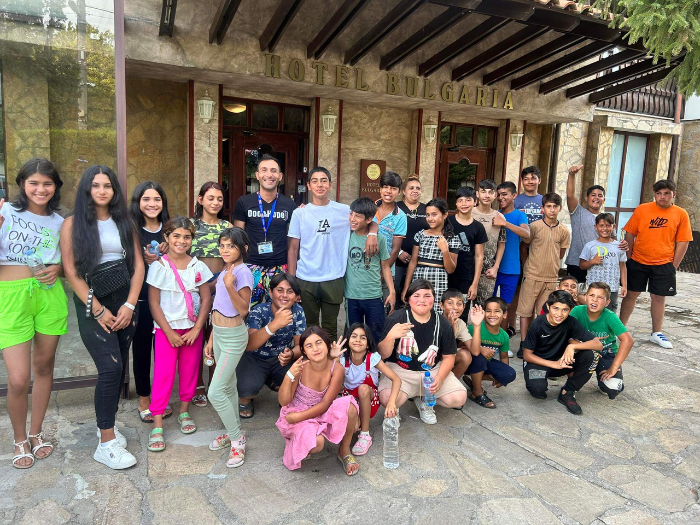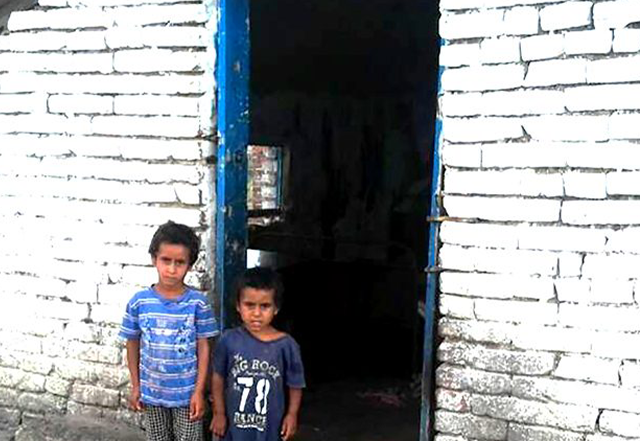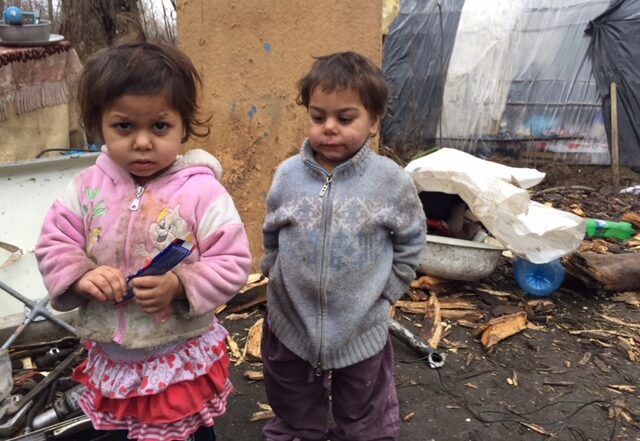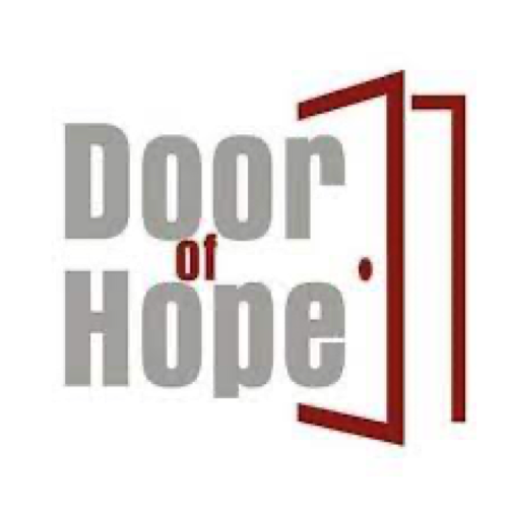BLOG POST
DEVASTATION IN BULGARIA
In parts of Bulgaria, people are still trying to come to terms with devastating weather conditions. It has been a catastrophic year. Apart from spiralling temperatures higher than what we experienced here in the UK, there have been destructive floods and chronic rainfall. Roads flooded, mud slides, rock falls, damaged houses, drowned livestock and even people lost in the overflow of water.
One week after I departed from a mountainous region in Bulgaria, the town I had visited was totally cut off by thick mud and falling rock from the mountains. Storms were often accompanied not by hailstones, but hail balls the size of chicken eggs. Cars were damaged and crops completely destroyed resulting in food prices shooting up. The unnatural weather conditions affected projects in the small town of Chirpan where we have our school and feeding centre for the elderly and children.
During these catastrophic weather conditions, we realised the value of our feeding programme. Every week, over 30 poor, ghetto children in our school receive meat with bread, butter, juice and sometimes cheese patties. I prize and value the moving experience of seeing these children gathering to receive their portion of food. Even in the most miserable conditions they have glowing smiles on their faces. I wish you could see them. Unlike children in our own country, they have no comparisons, no choices to choose from. They just happily take what they are given. This is amazing when one considers the background they come from.
DISCOVER MORE

A LETTER FROM ZENA
Ibrahim, is the youngest child in a big Turkish family. Both his parents are long-term unemployed due to no fault of their own. In the summer they have infrequent jobs in the field, while in the winter, they often poke around in bins in search for something to eat. After the calamities of this year’s weather, their summer work opportunities were destroyed, precipitating them into deeper poverty. The dismal ghetto living conditions have made Ibrahim very shy and reserved. He always rushes to eat his food outside of the school and not in front of the other children. In his dreams, he wishes to become an athlete and a footballer.
Leilya, She’s an eight-year old orphan. Her mother died giving birth to her. The father couldn’t cope. Leaving the girl with his sister he raced off abroad. He doesn’t send any supporting money and has never returned to see her. An aunt looks after Leilya who receives little attention due to the aunt having children of her own. Leilya could best be described as a survivor, depend-ing on charity clothes, shoes and food. She attends our school and loves to play with the other children.
Nazike, She is a nine year old girl who attends our school. Her father is in prison and the mother has left the girl with her grandmother, a not un-common practise. Nobody has any news of the mother. They do not know where she is. Nazike does not smile a lot but she is a good pupil and dreams of becoming a Kindergarten teacher. She lives in extreme poverty as her grandmother is old and survives on an extremely low income. If it was not for the help of neighbours, both of them would starve. Life is very difficult for a grandmother and grandchild living alone.
Ahmed, is the sixth child in a very poor family. He’s six years old and a pupil in our school. His wild dream is that if he passes an admission test, he will become a student in a state school. He is a hard working little boy who desperately wants to learn the Bulgarian language. A very hard task for a child whose entire family can only speak the Turkish language. But even at his young age, Ahmed is an eager boy. His teacher says that his bright eyes are always peering at her as he tries hard to memorise every word. Ahmed’s life is not easy. His father is another long-term unemployed man. He has no qualifications and can only procure seasonal work in the fields. When Ahmed’s mother was pregnant with him she fell down and fractured her joints. With no money to pay for a surgical operation she became disabled. She now limps and cannot work. In the summer, all four boys, never mind their age, work in the fields with their father. They dig cotton plants in attempts to provide money for the family. Ahmed’s older brother Selim looks after him.










